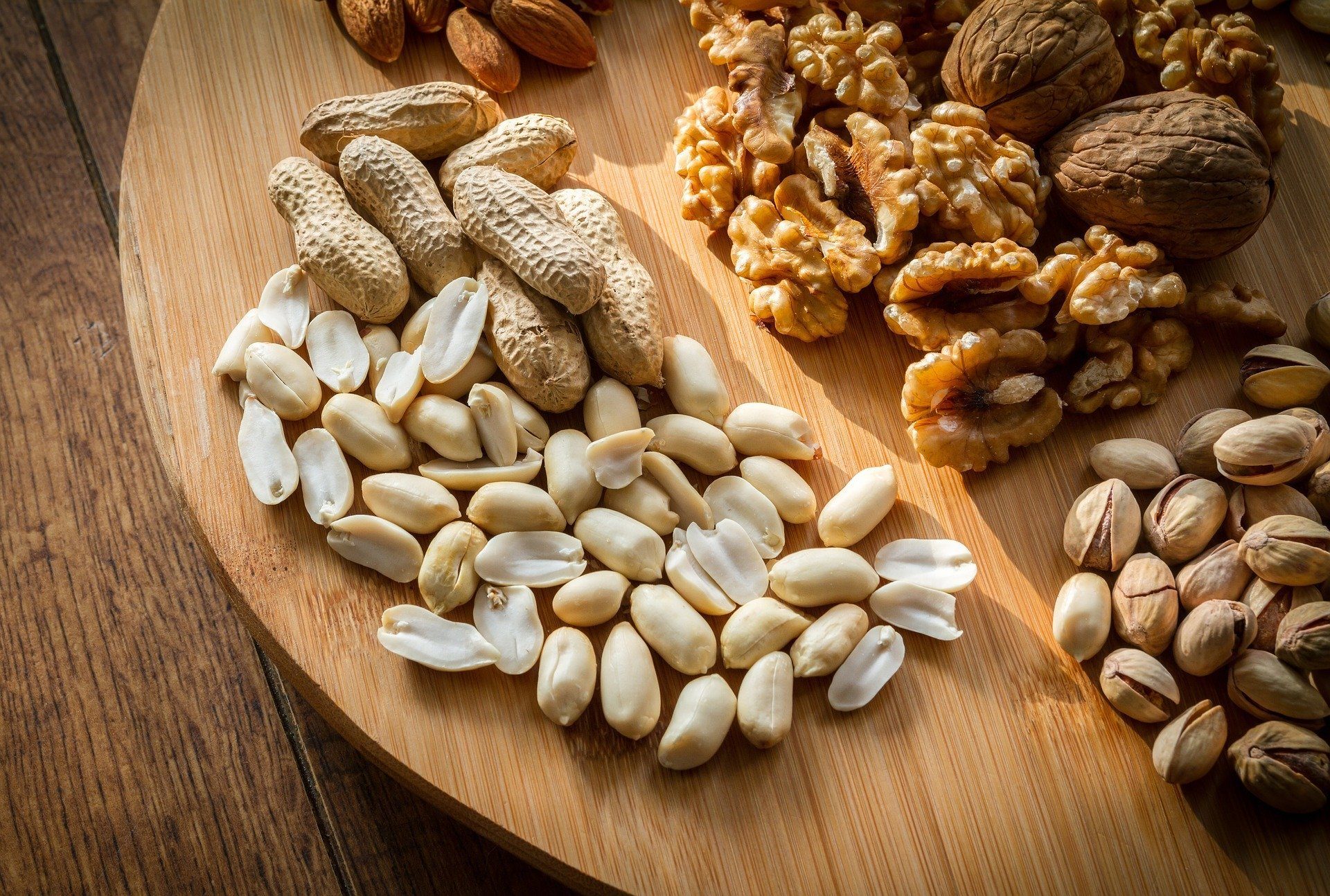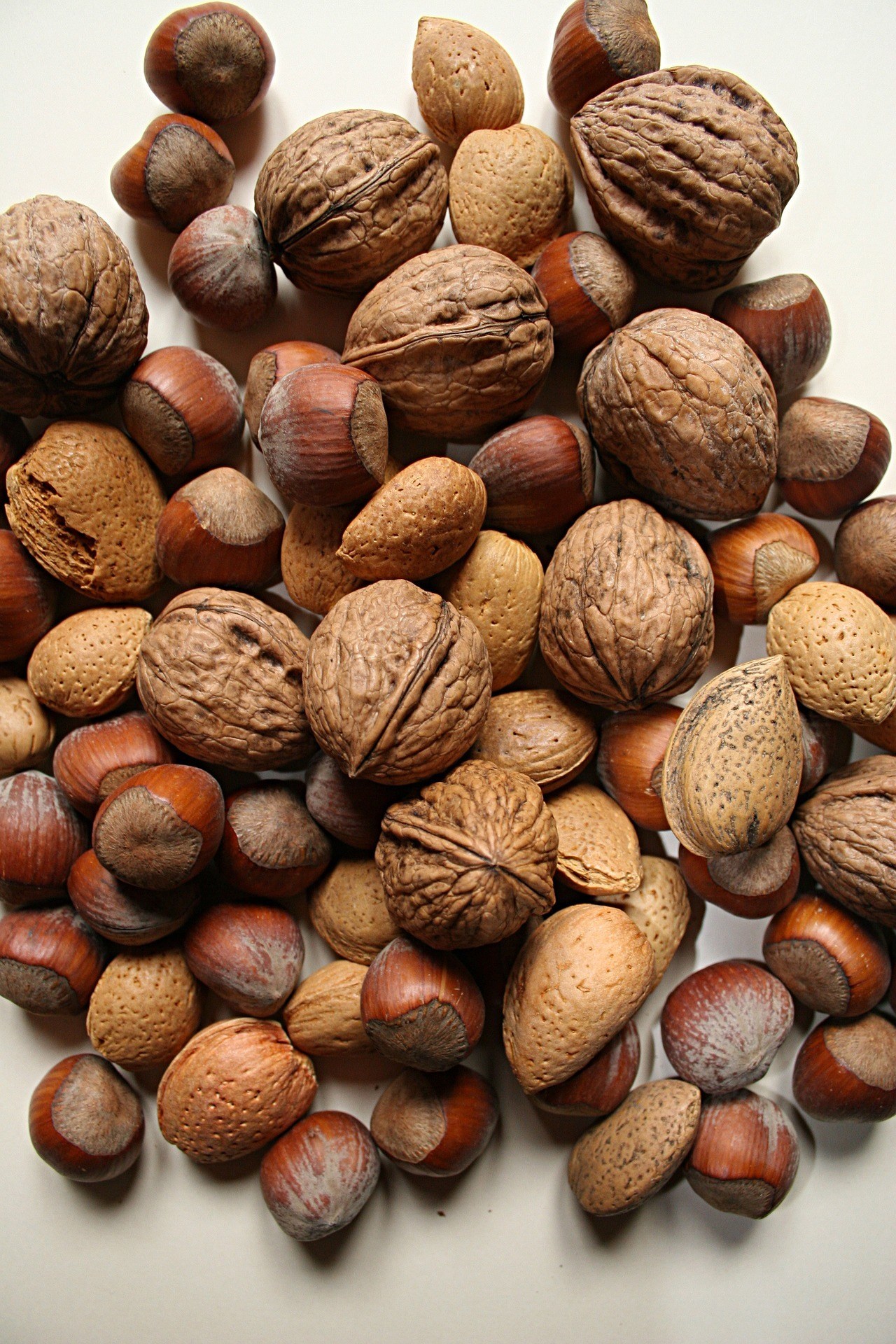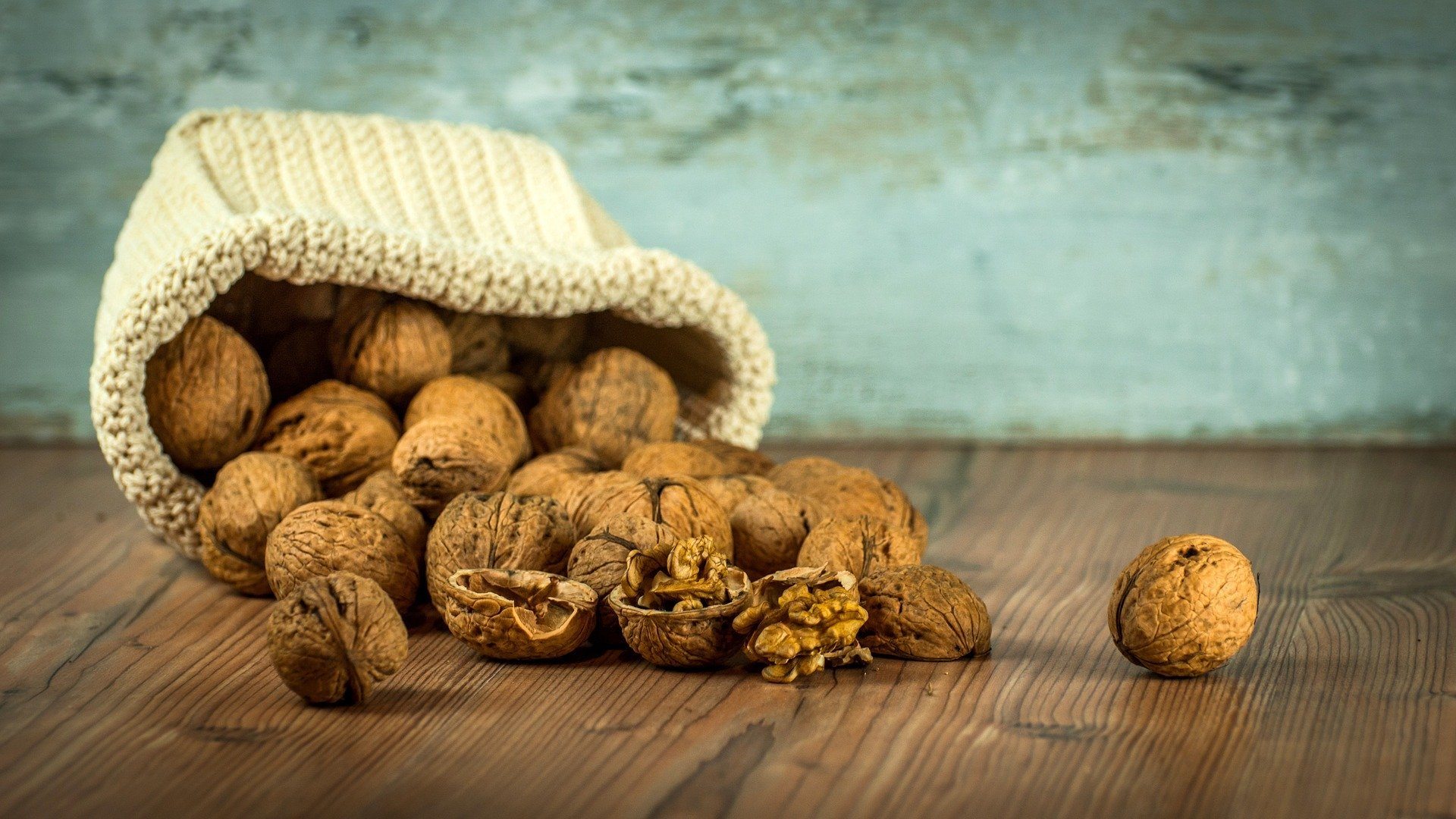Nuts are small packets of joy, flavor, and texture. Not only that but it is also loaded with various nutrients and components that are beneficial to the body. But, are nuts hard to digest? Yes, and there are four reasons why. It may cause intolerance, can be a factor for diverticulitis, contains phytic acid and is high in fiber. Let’s learn more in this article.
This is NUTS!
Do you love to eat nuts? These small, flavourful snacks that are loaded with vitamins and minerals are surely eyecatching and easy to eat. Nuts are common ingredients to various culinary products and commercial products too.
What are Nuts?
A nut is a fruit that has an inedible and hard shell and an edible seed. The most obvious example would be pistachio.
In the culinary world, the definition of “nut” is broader. Sometimes, we call a food a nut even if it isn’t a nut. As long as it is large, has oily kernels and is found within a shell, we usually call it a nut.
In this discussion, we are going to use the culinary description of a nut since it is more common and widely used.
Some nuts
Here are some examples of nuts:
- Almonds
- Brazil nut
- Candlenut
- Cashew
- Chilean hazelnut
- Macadamia
- Malabar chestnut
- Mongongo nut
- Peanut
- Pecan
- Pili nut
- Pine nut
- Pistachio
- Walnut
What’s In the Nut
Nuts are widely popular snacks. It’s impossible to enter a grocery store and not find a single nut-based food product. They are tasty, fun and easy to eat and can be added to meals like breakfast, lunch or dinner.
Nuts contain quite the punch for its antioxidant content. By antioxidant, it means that oxidative stress is reduced and so free radicals are neutralized. These free radicals are unstable and can increase the risk of cancer and cell damage.
The antioxidant content depends on the nut that you eat. For example, walnuts and almonds have a different antioxidant effect to walnuts and pecans.
Nuts do not only brag the antioxidants, but it also contains the following:
- Magnesium
- Phosphorus
- Selenium
- Vitamin E
- Fiber
- Coper
- Manganese
- Selenium
Even if nuts are high in calories, only some of it is absorbed by the body. Why? Because the fat part of the nut gets trapped within the nut’s fibrous wall during digestion.
The body only absorbs about 21% fewer calories form walnuts and around 5% fewer calories for pistachios.
Are nuts hard to digest?
1. Intolerance/allergy
Nuts are some of the most common allergen, especially peanuts. If you have an intolerance on one food item, it affects the digestion process. This may lead to some discomfort like gassing or a bloated feeling. If you experience the following, then you might have a nut intolerance:
- Gas
- Bloating
- Diarrhea
- Nausea
- Headache
- Stomach pain
For allergy, it involves the risk of an anaphylactic shock, which is very dangerous and can lead to death. If you are unsure about whether you have a nut allergy, it is good to try an elimination diet. Remove all nut-based products from your diet and reintroduce it bit by bit. Observe your reaction because the allergic reaction doesn’t take a long time to develop.
2. Diverticulitis
The intestinal tract has tiny pouches that can be inflamed if the pouches become weak. They may end up being small intestinal hernias. This condition is called diverticulitis.
Some symptoms include:
- Severe GI Pain
- Blood in stool
- Fever
Years ago, nuts were suspected to be the major factor for the development of diverticulosis. However, an 18-year study contested this claim and said that nuts and seeds are not strongly associated with diverticulitis. They found some evidence that it may even prove beneficial against the condition.
3. High in Fiber
Nuts are high in fiber, with almonds having the highest fiber content among the famous nuts. It has 3.5 grams of fiber for every 28-gram serving. Pistachios come close with 2.9 grams of fiber for every 28-gram serving.
Okay, so the body can’t digest fiber, but it doesn’t mean that you will avoid it altogether. The bacteria living in the colon can digest it and feast on it.
After the fermentation by the gut bacteria, the fiber is converted to short-chain fatty acids (SCFAs) that help improve gut health.
Due to this factor, we can say that nuts are hard to digest. Fiber is often the cause of diarrhea, especially if there is too much insoluble fiber in the diet.
4. Natural Defense Mechanism
Nuts contain phytic acid and enzyme inhibitors. This built-in mechanism is a defense system for the plant to protect it until it germinates.
This phytic acid is indigestible for us humans. It is something made only to protect the plants. And in a way, it affects the absorption of nutrients like zinc, iron and sometimes calcium too.
How to Eat Nuts
It is a good thing that there are different ways to help make nuts easier to digest. You can actually “go nuts” without the hassle of indigestion.
Soaking
As the name suggests, you need to soak it in water. But here’s the deal, you need to add salt to it too. Soaking in a saline solution helps reduce the phytic acid content of the seeds.
Soak the raw nuts overnight and then dehydrate them in the oven to 150 F for 12-24 hours until crisp.
Roasting
Another tip for nuts is to roast or toast them. You can set your oven to 350F and then wait for it until it becomes crispy.
You can also try it on a heated pan but make sure to shuffle the pan occasionally.
Nuts can give a wonderful texture to any dish that it is added to. In addition to that, it is also loaded with antioxidants and nutrients that can help the gut and the body. Are nuts hard to digest? Yes, because of the different natural factors that it has. However, it is not a reason to avoid nuts altogether. Remember to eat it in moderation and to use some tips and tricks to make it easier to digest.
What’s your favorite nut-based snack?
[thrive_toggles_group”][thrive_toggles title=”References” no=”1/1″]https://drwillcole.com/7-sneaky-foods-that-could-be-causing-your-digestive-issues/ https://lilynicholsrdn.com/why-eating-nuts-upsets-your-stomach/ https://www.huffpost.com/entry/5-health-foods-that-can-t_b_5852998 https://www.webmd.com/digestive-disorders/ss/slideshow-foods-to-avoid https://www.healthline.com/nutrition/8-benefits-of-nuts#section6 https://www.mindbodygreen.com/0-29537/are-nuts-actually-a-good-snack-a-nutritionist-explains.html https://www.livestrong.com/article/548094-nuts-and-gastrointestinal-issues/ https://www.ncbi.nlm.nih.gov/pmc/articles/PMC2854608/[/thrive_toggles][/thrive_toggles_group]





do you soak brazil nuts?
can eating nuts cause a histamine reaction ?